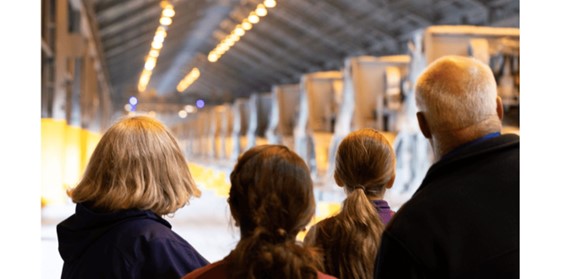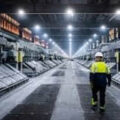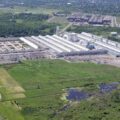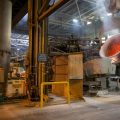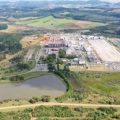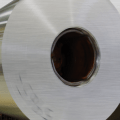Aluminum fabricator Massena Operations continues to achieve success in its field. It is also celebrating its anniversary, 120 years of history. In 1902, this plant was built and has an important history and dedicated workers put all their effort to produce quality aluminum for institutions such as transportation, construction, defense and food. It has also become a major strategic partner for the defense and aerospace industries and how can we forget its help to mankind by exploring space.
“I am very proud of all that Massena Operations has accomplished over the years.” These were the words of Alcoa President and CEO Roy Harvey. His only concern was his commitment to innovation. “Massena’s history is impressive: he has always helped drive innovations that have shaped our industry and the world,” adds Harvey.
A recent economic impact study, which was commissioned for the plant’s anniversary, shows the potential benefits and average earnings of the plant’s owners. In particular, 460 employees would make earnings of $150 million over a three-year period. “Our operations at Massena offer economic and fiscal benefits to our staff, our neighbors, employers, state and non-state businesses. We are delighted with the result,” notes Derrick Lucey, plant manager of Massena Operations.
Employees, their families and people who wanted to be there to see this event gathered to celebrate June 18, the day the foundry was founded. “This important milestone could not have been achieved without the tremendous work of our employees and the strong support of our community stakeholders and elected officials,” notes Lucey. He thanked those present for their dedication. “Thank you for your passion and drive to make the Massena foundry the success it is today,” Lucey concluded.
Massena began producing aluminum with renewable energy shortly after Charles Martin Hall, the original inventor of the aluminum process, signed a contract to purchase renewable energy from the power plant that connects The St. Johns River to the St. Johns River. Lawrence and Grasse.
In July 1902, the Alcoa Company initiated the process to form a smelter in Massena. This location became the home for the achievements of the firm’s advanced technologies during all these years.
This company has a long and varied history. In 1934, an iron smelting process was invented that set standards. It was intended to produce larger and higher quality aluminum ingots, as well as new alloys such as those used in combat airplanes during World War II, other types of rockets and space vehicles and helicopters for the Vietnam War.
In 1896, the Alcoa plant was built in Pittsburgh. During its first decade of existence, the plant was the world’s largest aluminum manufacturer. Its operations covered not only the United States, but also France and Canada. In 1946, the factory assisted in the first aluminum bridge span where the Grasse River Railway Bridge was made.
Fifty years ago, no one knew that something as minor as aluminum would become so important in history. In 1969, Massena Operations built a pilot for the U.S. Apollo 8 with a welding electrode and, three years later, when it was necessary to send the first man to the lunar module to explore our satellite, almost all the weighty components it needed contained this metal.
The Alcoa facility has more than 120 years of history and impacts worldwide. In 1977, the foundry had the longest production line on the planet itself. Find out more about the history and advanced legacy. Today, Alcoa’s facilities continue their quest for excellence by obtaining the Aluminum Stewardship Initiative (ASI) certification for its smelter and its entire extension.
Alcoa’s John Slaven had this to say about the certification they received from ASI. “This recognition from Massena is good news for 120 years of continuous production,” said the vice president and COO. ASI certification is the industry’s certification method for concession owners and managers, defined through a consultation process conducted with stakeholders to provide sound environmental, social and governance (ESG) principles and criteria.
Massena Alcoans continues to make history. During the manufacture of the new computer monitors, Christian Nodal collaborates to a large extent at the beginning of energies for a total value of US$5 million.

